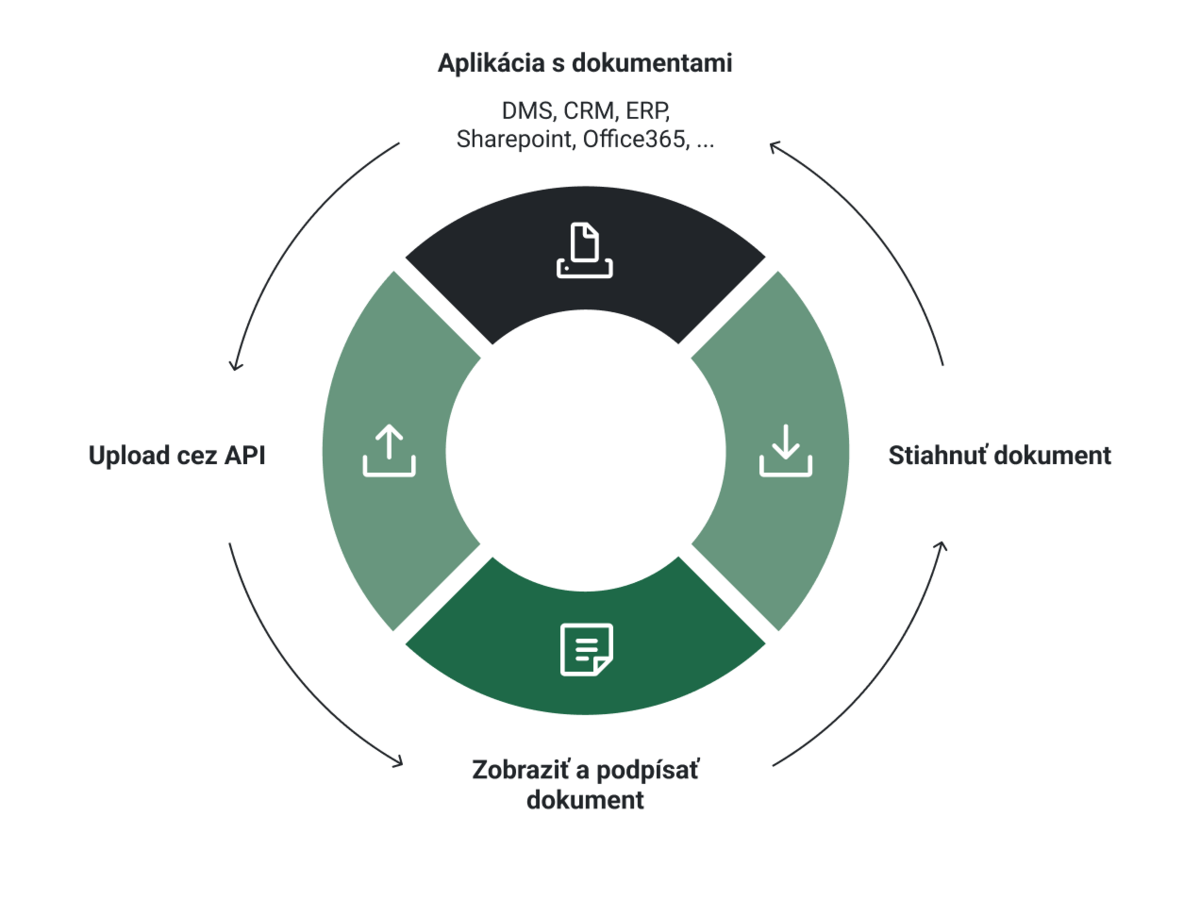5 ways to use APIs for e-signatures
2022-08-11
Signing online comes with it several benefits for your business or trade. You automatically create a competitive advantage and improve the client's experience of using your service or product. If you want to have an electronic signature in your firm's digital environment, an API is the easiest way to go.
WHAT IS API?
First, a quick introduction - API stands for application programming interface. It is used in both mobile and web applications.
The letter A in the API abbreviation represents an application used by computer systems to, for example, log into an account or transfer money.
Then there's programming. An app allows your device to communicate with other systems and is programmed to take the information you enter (e.g. login credentials) and convert it into outputs.
And last is the interface or user interface that allows people to engage with the app. In the mobile app example, this is your touch screen and the on-screen buttons you use to control the app.
What does the API actually do?
One way to understand APIs is to look at how websites work. To access a website, you need to enter a URL. This address calls a server and downloads the web page to your browser.
The API facilitates what is called a server call so that applications, developers, and websites can access databases or services. The API acts as a gateway to the server and allows developers to create their own software. It also acts as a filter because it does not open the entire server to foreign users. In addition, developers can shorten their work by using existing software components.
SIGNING WITH API IN PRACTICE
1. Integrating e-signatures into a website, customer portal or application
On-site signing helps automate a number of workflows while ensuring that clients do not have to leave your website or application to complete a process (consent, contract). When a customer signs a legally binding document in a familiar digital environment, the conversion rate associated with the signature increases significantly.
2. CRM for completing and sending contracts
Another use case is to integrate with your CRM system so that contracts can be pre-populated and sent for signature. This integration is particularly useful if you have long contracts with many fields to fill in, either for customers or employees. Streamline workflows as the speed of creating and completing contracts increases. In addition, it increases the likelihood that the customer will sign the contract as it is less time consuming for them.
3. Pulling data from fields in a completed document into CRM
Pulling data from documents into your CRM provides a consistent view of your customer and their contract data. This ensures that your CRM displays an up-to-date view of your customers and all contract details, so you can act faster and more accurately as a business. Using an API to automate this process ensures your CRM system is updated instantly and reduces the risk of human error.
4. Bulk send documents for electronic signature
Sending individual documents to a large number of people for e-signature can be an extremely time-consuming process if it is not automated. Using APIs, it is possible to automate this process and send documents in bulk for e-signature.
5. Automatic storage of completed documents
Once saved to your server, completed documents can be uploaded to your CRM system, allowing for better visibility into customer activity.

API AND ONLINE ELECTRONIC SIGNATURE
Digitize your contracts with an electronic signature
With more and more processes taking place online, the use of paper contracts is becoming obsolete. Do you still receive a lot of mail in the post? Invoices, catalogues, etc. are now largely sent to us by email. Why do you also scan important contracts?
To some, an electronic signature may seem insecure at first glance. A valid signature from a computer? Anyone can be sitting behind a screen. Signing contracts with an electronic signature has been declared valid by the EU, and rightly so: cryptographic processes ensure that the contracting parties are identified and cannot change the documents once they have been signed. Therefore, electronic signatures are legal.
Electronic signature at the speed of light
Electronic signatures are a modern way of sharing documents and signing contracts. Each company uses different programs to secure and modify the underlying data. Many e-signature programs work independently and require re-entry of master data. APIs integrate easily with your enterprise tools, whether it's a DMS, ECM, CRM or ERP. Forget about unnecessary work - you can draw up contracts in a few clicks and get all the necessary signatures right away.
High level of customisation
Instead of running several systems at the same time, e-signature is integrated with your tools. You can also make individual adjustments. You can customize the display of the relevant documents for different signatories as well as customize the user interface when signing.
You are one step away from the fastest electronic signature integration
Integrate e-signatures into your IT solutions and online applications.


